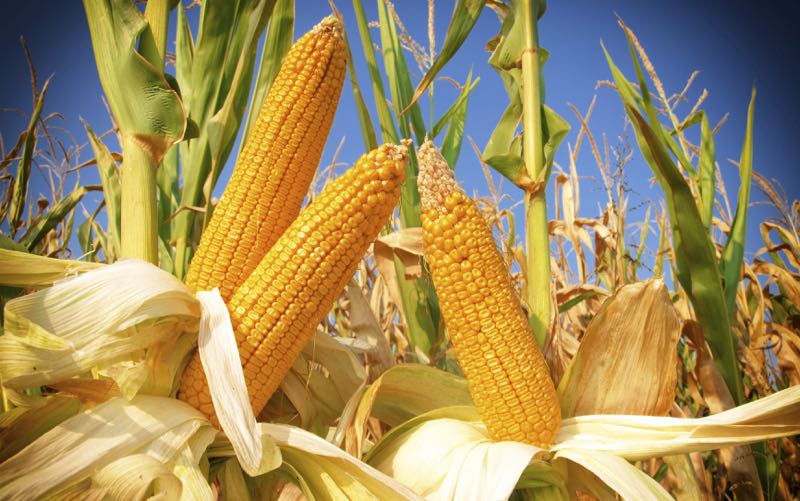Why You Should Own Copies Of Your Blood Work And How To Read The Results

Health records are a funny thing. They contain some of our most private, personal and important information about ourselves and very few of us have our own copies. When we get tests done, rarely can we get our results sent directly to us.
Back in 2006 when I was suffering from severe symptoms of IBD, I went to see my doctor, who informed me that she would be moving out of the city and would not be able to follow up. She suggested I find a new family doctor, but she didn’t mention she would be taking my health records with her.
Getting access to my health records in order to get them to my new doctor required a drive to the town where she moved her practice and payment to get copies of it all. The next doctor I had left her clinic, but left the records at her former clinic, which I then had to get transferred to her new clinic. I offered to physically pick them up myself and bring them with me to the new clinic, but that was breaking protocol and so not allowed.
It was around this point that I went through everything that was in that big fat file, made copies for myself and began the adventure of learning how to read all of them.
Benefits to Owning Copies of Your Blood-work and Other Health Records
When you own your health records, you can:
- Track the ups and downs of your health (hopefully there will be more ups!)
- Take an active role in your health care
- Learn to understand the tests and blood work and learn what they mean
- Keep a record of all symptoms, medications, treatments, etc. (It can be hard to remember this years down the line)
- Feel empowered
- Have a record and resource for family members in emergency or long-term health situations
One of the most important and empowering things we can do is learn to understand what our blood work means.
Most often we get blood tests done, and if all is normal, we never hear another thing about it. If something is off- we get the call to either take one supplement or another, are advised to monitor and have another test done, or are called in to discuss the results. How many of us actually say “Thank you, and please send me a copy?”
You. Must. Start. Now.
Having copies of my own blood work was part of how I was able to fully heal and track my results when I was diagnosed with Crohn’s and a suspected thyroid condition. I am now able to monitor and compare current records easily with past records to know whether I am on track- and more so- know, really, how I am measuring up- and not based on what conventional medicine considers the “normal range” but what is ideal and optimal for me.
Check out this video with my husband, Functional Medicine Practitioner and Clinical Nutrition Josh Gitalis where we cover:
- What are the docs looking for when they do blood work?
- What does it mean to be in the “normal” range?
- What is considered “optimal” when it comes to test results?
- How subclinical symptoms can lead to disease.
- What it means to be “pre-disease”- ie. pre-diabetic.
- Optimal nutrient levels for prevention of disease.
- Benefits to your healing of understanding your state of health.
- A key tool in helping you get organized when it comes to your health.

How I Learned to Use My Health Records
In the summer of 2006, when I was doctor hopping, one of those doctors was an endocrinologist. Due to my rapid weight loss and other associated IBD symptoms, my doctor suspected I may also have a thyroid condition. The results of the tests and scans in fact revealed that I was hyperthyroid – fortunately, I did not get the formal diagnosis of Graves Disease, even though the signs kind of pointed in that direction. Autoimmune after all is rarely reserved for just one part of the body.
In 2008, I was sent for another set of scans as a follow up. The doctor was concerned as the nodes were still there and my thyroid was still enlarged. Though she declared it was still in the “normal range”, I was advised to consume iodized table salt, but avoid to sea vegetables as according to her, they were not ‘regulated’. She wanted me to follow up in six months to start considering a treatment plan. Instead I changed doctors.
Three years later, I went for my physical and my doctor suggested I go for a follow up scan. So I did. A couple weeks later she called to say everything looked fine.
I asked for copies of the report.
When it came, I pulled out my old purple ‘Medical/Health’ folder and found the copy of my report from 2008. Do you know what I learned?
I’m healing. My approach to dealing with my thyroid was based on my UnDiet philosophy to health. I supported my thyroid healing through herbs, sea veggies like Irish Moss and cleansing practices, which was really doing nothing at all but living how I live and let my body do what it does – continue to heal, repair and rebuild.
Comparing my records from 2008 and 2011, I didn’t need a medical degree to see in the measurements written that the left lobe of my thyroid, previously enlarged has shrunk by 3 cm and the nodes now measure in the teensiest of teensy. Kind of amazing, right?
Both doctors said I was in the normal range so it was of no concern, but I want to know whats was actually happening. I wanted to be in the optimal range and in order to know this, I wanted to see my records for myself.
Optimal health has nothing to do with ranges and recommendations. Knowing the littlest bit about such tests and how to read them empowers us to make our own decisions of what is ‘normal’ and what is ‘healthy’.
Knowledge is absolute empowerment. Understanding where things are low, or what we would call ‘subclinical’ is vitally important to health. Subclinical is when things don’t feel quite right, yet appear within optimal ranges of medical testing. This is the optimal time to address and prevent with health and nutrition.
How You Can Use Your Health Records
- Organize them. Create a binder (or save records digitally) to help you easily organize your records so you, your family, or other health care practitioners can use them.
- Learn how to read them. While you’re not a doctor, you can learn to understand the basics of these tests and what they mean. This episode of Meghan TV can help you understand what your blood work means. If you have a specific condition, there are many books or online resources that break down what the major tests of that condition are and what they mean.
- Keep them in a safe place. Keep your health records safe and ensure your family members know where they are in case of emergency.
- Note any trends. As time passes, hopefully you’ll be able to identify any issues that need to be addressed or areas that could be improved.
- Take action. All of the amazing information in your health records isn’t useful unless you use it! Once you’ve discovered what areas of your health can use a tuneup, work with your doctor or health practitioner to make a plan to support optimal wellness.
The first step is to call your doctor’s office and request copies of all your medical records from the last five years (or more if you ever had a major health concern). Keep these safe. And if you have to pay for them, you should. It is worth every penny, should you ever need them.
Some provinces here in Canada have online systems where you can access results when you go for blood work or other tests. See if your health care authority or the labs in your area have this as an option.
Once you’ve got your health records, here’s what you can do:
Do you own your records? Have you ever looked at them? Do they even make any sense to you?
Image: iStock/live2create
Free Resource Library
Enjoy more than 40 downloadable guides, recipes, and resources.
























When I was pregnant, my OBGYN used to review the results and then hand them to me. We kind of had an understanding about these things…
Funny you mention this on your blog. I have been dealing with trying to get my medical records for 10 days now. As of yesterday afternoon, they were lost. I am incredibly frustrated and not sure where to go next. I don’t have anything serious going on, but I am going to a specialist and would like to be able to sit down with the doctor when we go over medical history and accurately give her my information. I’m not giving up, but encouraging all my friends to get copies of their medical records, just in case they “disappear” on them as well.
Really interesting! You know, I worked at a Dr’s office for two years and my mom did for over five years. I know how to read records- but I don’t think I have my own! The doctor does usually send me test results with a note explaining them, but I’ve never gotten to see all of my records. I really should ask for them!
This is great advice! I always keep my blood test records to compare one year to the next. Doctors certainly have their purpose but I think everyone should practice being their own doctor and learning to interpret a basic blood test.
When working with clients I ALWAYS tell them to get their records for review. Some offices are great about this and some act as if you’re accusing them of assassinating JFK. My doctor’s office makes it very difficult.
If your doctor doesn’t have your best interest in mind, find a new one!
Doctor = to teach……..how can we learn if we don’t have the notes?
j
It’s also amazing to find a doc that does the non-conventional testing such as that offered by Rocky Mountain Analytical labs. Their tests can help with sub-clinical conditions since they can measure hormones using saliva which for many [hormones] is better than blood. They also test for food allergies so you can find out if you’ve developed a specific antibody to a food, and not the IgE scratch-test antibody your MD looks for but rather the IgG kind more often involved in food allergy. It was also through them that I found out I have toxic arsenic levels, probably from the soil/food of the area I lived as a kid, and thus started heavy metal cleansing, which wasn’t picked up in any of my symptomatology (yet!). Most closed-minded MDs gawk at these kind of things or don’t care for them, but many DCs, NDs, and on-board MDs order tests through RMA labs or similar. http://www.rmalab.com – the reports are AMAZINGLY detailed and easy enough for anyone to read. Though I’m sure you nutritionist peeps already know loads about them, something for the non-health care practitioners to know! Symptomatology is a great tool but objective scientific evidence tends to be what clients/patients are demanding in this day & age too, so I like when it can detect imbalances before a full-blown disease state sets in (unfortunately, that’s the time when MOST medical tests can detect it.)
Like you, a couple of record transfers taught us to keep copies of all of our medical records. We read every last test, and our doctor encourages us to! We are able to discuss health issues more intelligently with him when we have read the test results ourselves.
Interesting. My doctors have always shown me reports openly. I have also gotten copies of my bloodwork by calling the lab when my tests were done and having them fax it to me.
My thyroid story is almost identical to yours. I had suspected for a while that I had been hyperthyroid (suffering from massive, semi-diagnosed autoimmune attack and was VERY thin), I had shifted to hypothyroid (I had every symptom, including rapid weight gain beyond what I needed to be healthy). My endo found nodules on my thyroid, requested an ultrasound, and found so many strange lumps that she thought I may have thyroid cancer. After biopsies, they were found to be benign. I was still freaked out by what that could mean, and do you know what she said? My TSH levels were “within normal ranges” and so I was fine. It didn’t matter that I was having all these symptoms and health problems. She didn’t even say why I would be getting the nodules in the first place, just that they were really large for how young I was but no big deal. That just didn’t sit right with me.
I’m still dealing with this mess, but trying to heal with the help of wonderful sea vegetables, sea salt, and good nutrition. Doctors are pretty clueless about the thyroid, I have realized.
Interesting – the family doctors that I have gone to over the years have always treated my medical records like they are a nationally guarded secret, and not for my unworthy eyes to see, so I will definitely be asking for a copy every time moving forward! I have battled with anemia and low iron for years so it would be helpful to see when I change my diet and form of iron supplement when it’s actually making a change, rather than always just being told “it’s still too low”. Thanks for posting this article!